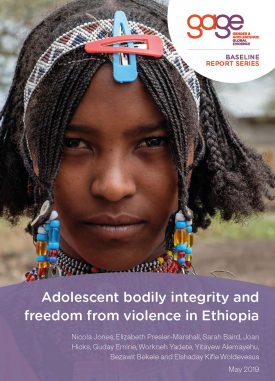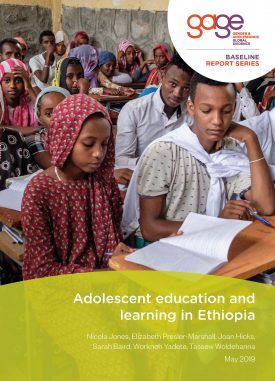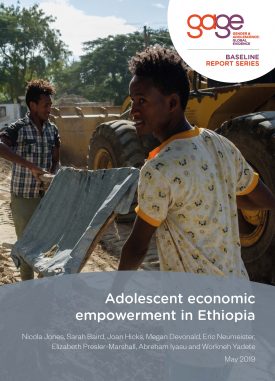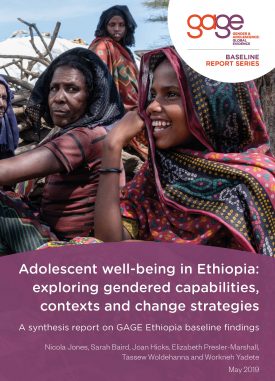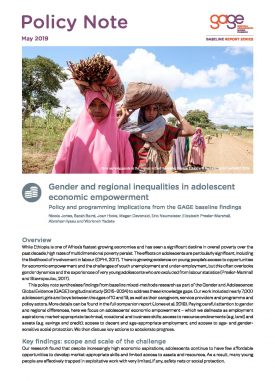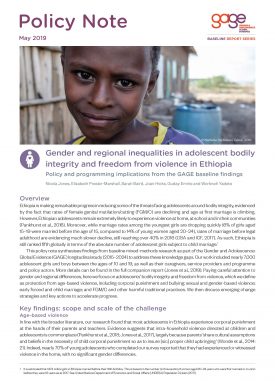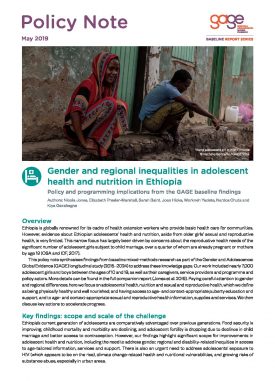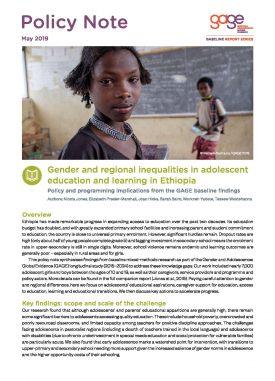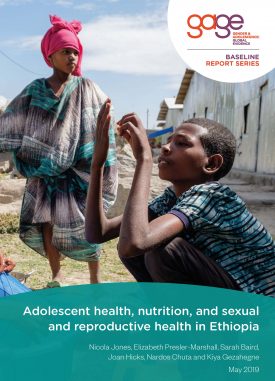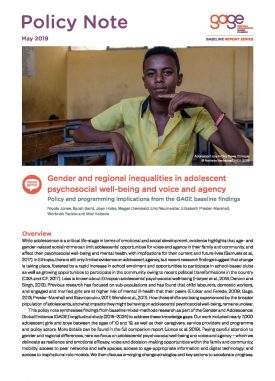The report on adolescent psychosocial well-being and voice and agency in Ethiopia is one of a series of short reports presenting findings from baseline mixed-methods research as part of the Gender and Adolescence: Global Evidence (GAGE) longitudinal study (2015–2024). In Ethiopia, our research sample involves a survey with more than 6,800 adolescent girls and boys from two cohorts aged 10–12 years (younger adolescents) and 15–17 years (older adolescents), and more in-depth qualitative research with 240 adolescents and their families. The baseline data was collected in selected sites in Afar, Amhara and Oromia regional states and Dire Dawa city administration during 2017 and 2018.
We focus on: adolescents’ resilience and emotional efficacy; their voice and decision-making opportunities within the family; their mobility; their access to peer networks and safe spaces; their access to age-appropriate information and digital technology; their access to inspirational role models; and opportunities for civic engagement.
Key findings
- Resilience and emotional efficacy: While overall adolescents have a low level of mental distress, girls experience considerable levels of anxiety and depression owing to sexual harassment and the risks of sexual violence and forced and child marriage.
- Voice and decision-making within the family: Younger adolescents, girls and adolescents in rural areas (especially in pastoralist communities) have less say.
- Mobility, access to peer networks and safe spaces: The overwhelming majority of adolescents need parental permission to move around their communities. Urban adolescents and girls face the greatest mobility restrictions and also safety fears.
- Access to age-appropriate information and digital technology:Adolescent connectivity – having access to a mobile phone and/or the internet when needed – is very low.
- Access to inspirational role models: Young adolescents and girls are less likely to have a role model outside their family whereas males and older adolescents in urban areas are more likely to look up to, e.g., community leaders, educational professionals and political figures.
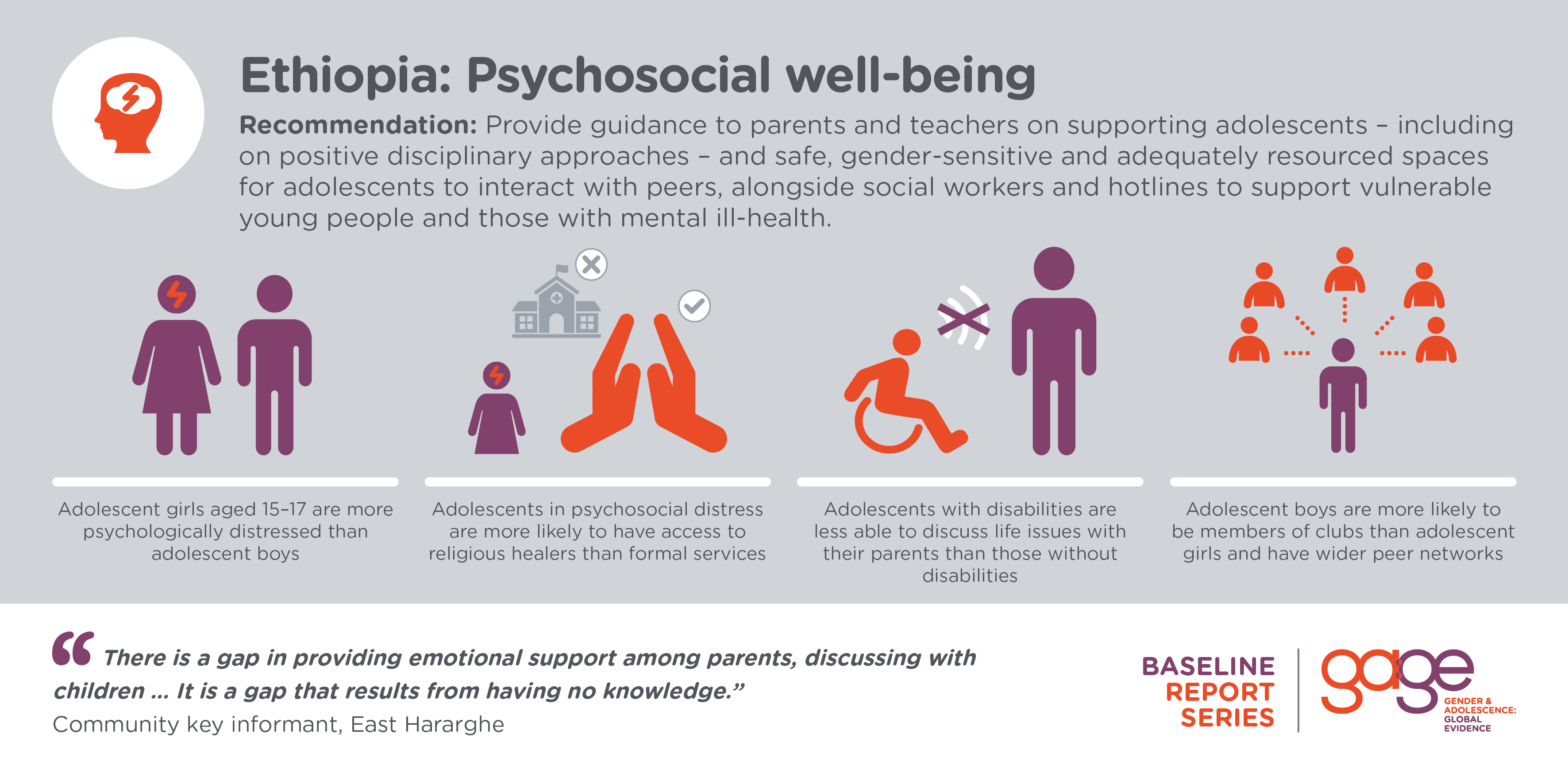
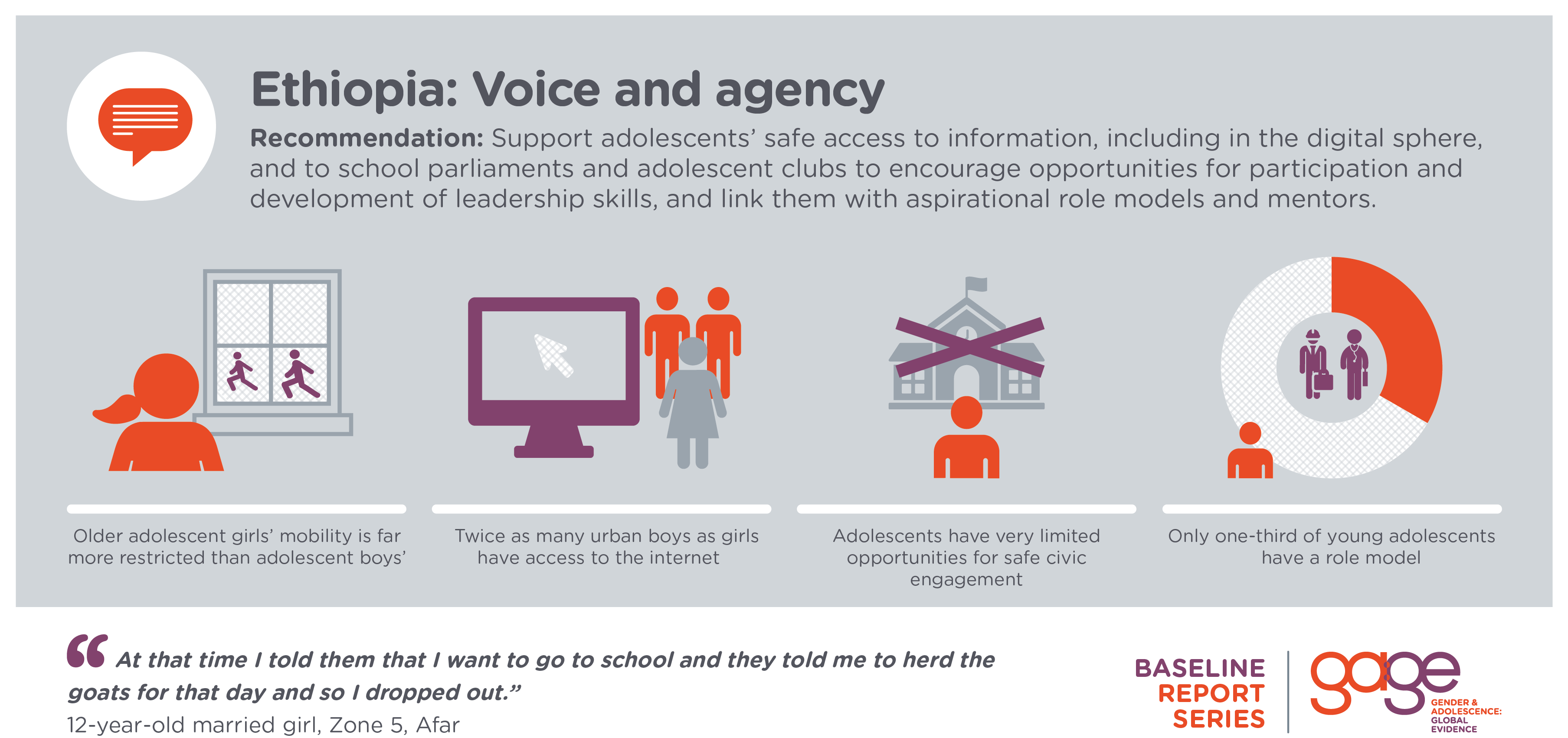
Suggested citation
Jones, N., Baird, S., Hicks, J., Devonald, M., Neumeister, E., Presler-Marshall, E., Yadete, W. and Kebede, M. (2019) Adolescent psychosocial well-being and voice and agency in Ethiopia. Report. London: Gender and Adolescence: Global Evidence. (https://www.gage.odi.org/publication/adolescent-psychosocial-well-being-and-voice-and-agency-in-ethiopia/)
